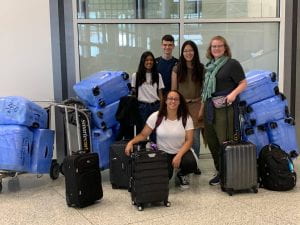
Hello from Malawi! After a whirlwind of packing, three plane rides (two of which lasted ten hours), and a five-hour bus ride, we finally arrived in Blantyre. Although I’m not really sure what I exactly expected Malawi to be like, I think I vaguely conceived the country to be utterly different from anything that I had experienced before, which I quickly realized was a highly flawed perception. That is not to say there are not clear cultural, social, and technological differences between the United States. (Some of these differences have definitely led to some interesting experiences—such as hand-washing clothes for the first time).
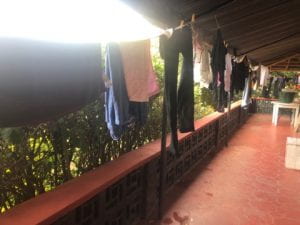
Nonetheless, unexpected similarities and blurred borders were a common theme that kept appearing and reappearing. By this, I mean the undeniable commonalities that lied under and tied together the differences I saw during my journey here, my experiences meeting new people, and my first few days here in Blantyre.
The first instance of this was merely comical. During our brief adventure around London, UK during our ten-hour layover, when we exited the airport from the metro station, we saw a giant floating balloon in the shape of Donald Trump. Trying to put together the occasion for this flashy display, we quickly realized that there was a protest Trump’s visit to the United Kingdom. I found this rather amusing: Just as we were trying to get a small taste of Europe, somehow the U.S.’s affinity for anti-Trump protests crossed its borders and followed us to London.
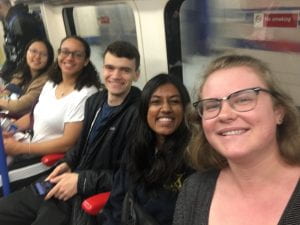
Later, this idea came into a physical manifestation during our bus ride from Lilwonge to Blantyre. The road between these two cities stretches along the very border between Mozambique and Malawi. However, if we had not been told so by our bus driver (the amazing and very kind Mr. Richard) (or if my phone hadn’t thought it was in Mozambique for a bit), we would have never known. In some stretches, there were communities on both sides that had no visible differences, with people crossing freely from one side to another to buy and sell various goods in a market. Coming from Texas (with its heavily guarded and barbed wire fenced border with Mexico), this was the first time I realized just how blurry and inconsequential a border can be (Yes, this is the inspiration for the rather trite title of this blog).
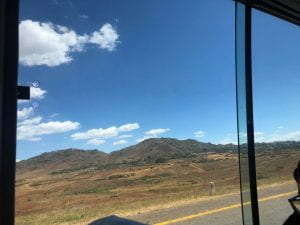
Before this, we had already met up with the interns from the Dar es Salaam Institute of Technology in Tanzania that were going to be living with us. I have to admit, I was a teeny bit worried initially about living with people from such a different culture for seven weeks (What if they don’t like the food we cook? What if we have no common interests?). It would be an exaggeration to say we became friends instantly, but after getting to know each other pretty well after living together for a few days, I realized we had more in common than I thought (in hindsight- obviously). They also liked Rihanna, though some African artists were very popular in Tanzania as well. They also had to deal with animal bandits in their backyards, though they were monkeys stealing phones not squirrels stealing muffins. (That’s not to say they didn’t try some uniquely American food creations for the first time though- hard shell tacos, Oreos transported over three continents, etc).
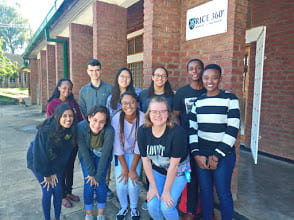
The instance of this theme that is probably most applicable to our internship occurred during our first quick visit to Queen Elizabeth Central Hospital to introduce ourselves to the Rice 360 CPAP office staff on Friday. Admittedly, physically it did not resemble any hospital I’ve been inside, with colorful exteriors and patches of the outdoors between separated hospital buildings (especially considering the only hospitals I’ve spent appreciable time inside are the tall skyscrapers of the med center with glass and steel sides and clinical white walls). However, in function, it was almost the same. The wards for pediatrics, ENT, neonates, etc were in separate physical locations with concerned families and busy nurses and nursing students hurrying between them through endless hallways. Not to sound overly didactic, but I think it’s an interesting lesson that, even as we are trying to identify and keep in mind the particular context of medical care here, we need to remember that ultimately the challenges we see and the possible solutions for them are not all that different from those we observe back home. Between the differences in cultural practices and resources in medical care in the U.S. and Malawi lies not a stark line but a hazy common ground—a blurred border.
-Sally